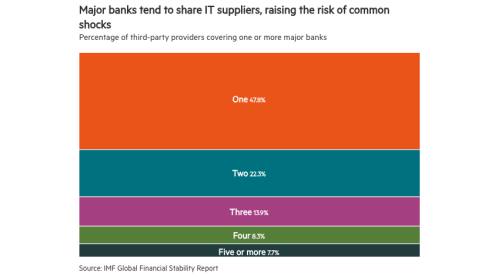While there has been good progress, gender diversity remains below investor expectations at European financial services boards, according to EY’s inaugural European Financial Services Boardroom Monitor.
Germany and Switzerland have the least gender-diverse boards, with a male/female split of 75%-25% and 72%-28%, respectively. Meanwhile, Italy and France have the most gender diverse boards, with a male/female split of 53%-47% and 56%-44%, respectively.
Gender diversity is highest among board members at wealth and asset management firms, with a male/female split of 59%-49%. In banking, this drops to 64%-36%, while insurance firms have a split of 63%-37%.
However, data from the EY Boardroom Monitor shows that women are becoming increasingly better represented at boardrooms in Europe, with 42% of female appointments within the past three years compared with 31% of male appointments over the same period.
Despite the advances, males dominate boardroom representation at European financial services firms, with the current male/female split standing at 63%-37%. Investors are increasingly looking at gender diversity, with 44% of investors surveyed claiming it significantly influences their decision to invest in a financial services company, compared with 16% who said it does not influence their decision at all.
“Although the financial sector in Europe has come a long way, many institutions still have a significant journey ahead to meet investors’ expectations on boardroom diversity,” says Omar Ali, Europe, the Middle East, India and Africa managing partner at EY.
“Most shareholders believe that having a gender balance matters, yet women frequently make up less than 40% of major European financial services company boards – this has to change,” he adds. “Most firms will want to be ahead of incoming regulation that will mandate more equal gender diversity from 2026.”
The average board tenure for female directors is 55 months, compared with 65 months for men.
Age diversity is also an important consideration for shareholders, with 45% believing financial services boards need representation from a wide age range. However, only 8% of financial companies monitored by EY have board members under the age of 40.
Just over a half (51%) of investors surveyed also said boardroom experience in sustainability has a ‘significant’ impact in terms of making a company an attractive investment, with 22% of investors saying it has a ‘highly significant’ impact on a company’s investment case. However, only 19% of financial companies monitored by EY have board directors with any experience in sustainability. Banks are way ahead of other financial services sectors in this aspect, with 34% of bank boards having people with sustainability backgrounds, compared with 11% of wealth managers and just 4% of insurers.
Meanwhile, only 9% of European financial services firms have boardroom level experience in fintech. Banks and wealth and asset managers have significantly more fintech experience within their boardrooms than insurance firms at 11% compared with 4%. However, data from EY shows that this is improving, with 88% of directors with experience in fintech appointed to European financial services boards within the past four years.
EY’s Boardroom Monitor tracks data from board directors in the MSCI European Financials Index, as well as several additional large national institutions. EY also canvassed the views of more than 300 institutional investors in financial companies across the UK, Germany, Switzerland and France.






